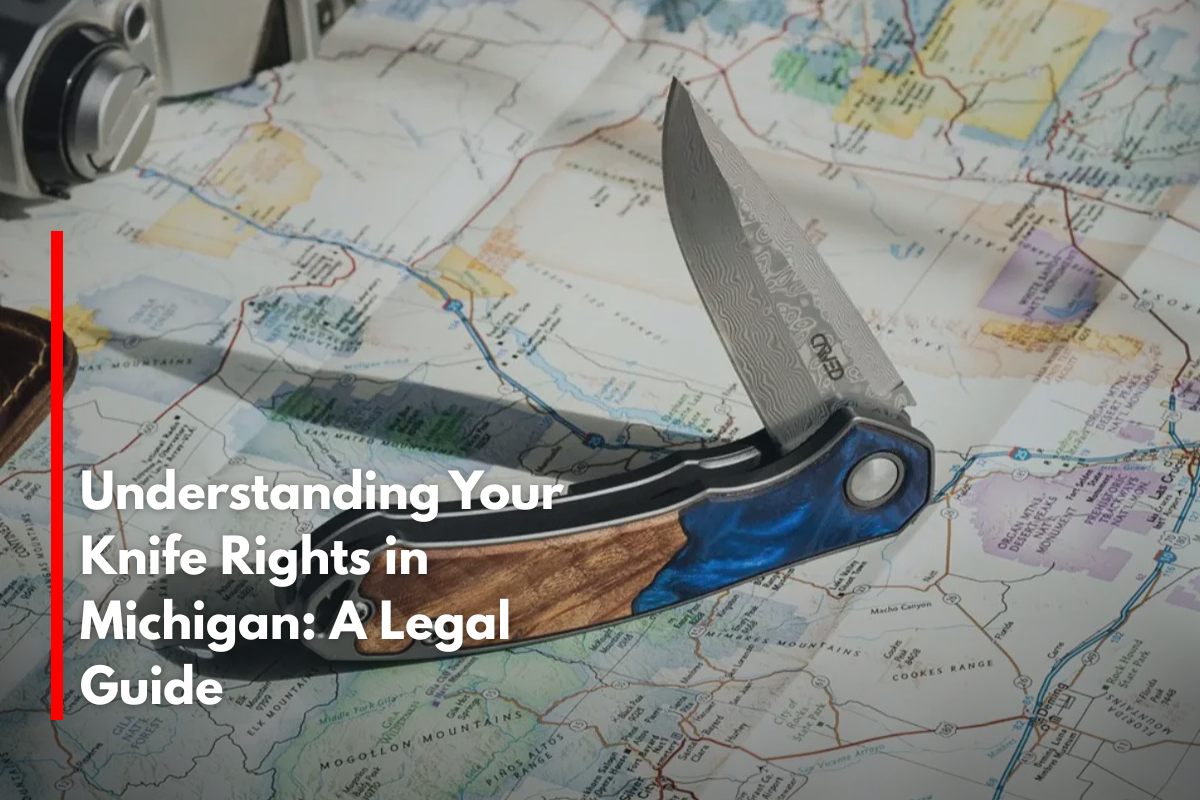Knowing the laws about carrying and owning knives in Michigan is essential for anyone who wants to stay on the right side of the law. Michigan has specific statutes regulating knife possession, types of legal knives, and conditions for carrying them openly or concealed. This guide explains your knife rights in Michigan, what knives are legal or restricted, and important legal tips to keep in mind.
Overview of Michigan Knife Laws
Michigan regulates knives primarily under Sections 750.226 and 750.227 of the state penal code. These laws focus on preventing unlawful possession of dangerous weapons while allowing legal ownership and use of knives for work, hunting, or everyday carry.
The centerpiece of Michigan’s knife laws is the prohibition against carrying certain kinds of knives—such as daggers, dirks, stilettos, and double-edged non-folding stabbing instruments—concealed or otherwise, unless on your own property or place of business. Violations can lead to felony charges with imprisonment up to 5 years and fines up to $2,500.
Legal Knife Types and Lengths in Michigan
Pocket Knives: Folding knives with blades under 3 inches are legal to carry concealed without presumption of unlawful intent.
Larger or Fixed-Blade Knives: Knives with blades longer than 3 inches or fixed blades may be carried openly if there is no unlawful intent. Concealed carry of these knives is generally prohibited unless exceptions apply.
Restricted Knives: Certain knives such as automatic (switchblade) knives, daggers, dirks, stilettos, and double-edged knives are forbidden for concealed carry and may be illegal to carry in vehicles.
Special Cases: Hunting knives and knives carried for lawful employment purposes may have special exemptions.
Concealed Carry and Transportation Rules
Carrying a knife hidden on your person or in a vehicle has strict rules in Michigan:
Folding knives with blades under 3 inches may be concealed carried legally.
Concealed carry of daggers, stilettos, or double-edged fixed blades is illegal except inside your home, place of business, or owned land.
Knives in vehicles must be stored out of reach (like in the trunk) to avoid being considered concealed carry illegally.
Local Ordinances and Important Exceptions
Michigan allows cities and municipalities to enact stricter knife regulations. For example:
Practical Tips for Knife Owners in Michigan
Know Your Knife: Be aware of your knife’s blade length and type—this affects your legal rights to carry and transport.
Use and Purpose Matter: Carry knives for legitimate purposes such as work, hunting, or daily tasks, not with any unlawful intent.
Check Local Rules: Research and comply with city-specific ordinances where you reside or travel.
Transport Properly: Always store knives out of immediate reach in vehicles.
Stay Updated: Laws change, so stay informed about current Michigan knife legislation.
Michigan knife laws balance the right to own and carry knives with public safety concerns, especially regarding concealed carry of dangerous knives. Folding knives with blades under 3 inches enjoy broad protection for concealed carry, while larger or double-edged knives face more restrictions. Understanding these laws helps responsible knife owners stay lawful while enjoying the utility and tradition of knife use.
Stay informed and take care to use your knives responsibly in Michigan—knowing the law prevents costly legal troubles and ensures safe enjoyment of your knife rights.
This guide summarizes key Michigan knife laws and practical ownership advice for 2025, highlighting legal knife types, carry rules, and local nuances for knife owners in the state.
Sources
(https://www.couteaux-morta.com/en/michigan-knife-laws/)
(https://www.akti.org/state-knife-laws/michigan/)
(https://www.legislature.mi.gov/doc.aspx?750.227)
(https://nobliecustomknives.com/us-knife-laws/michigan-knife-laws/)
(https://ravencresttactical.com/michigan-knife-laws/)











